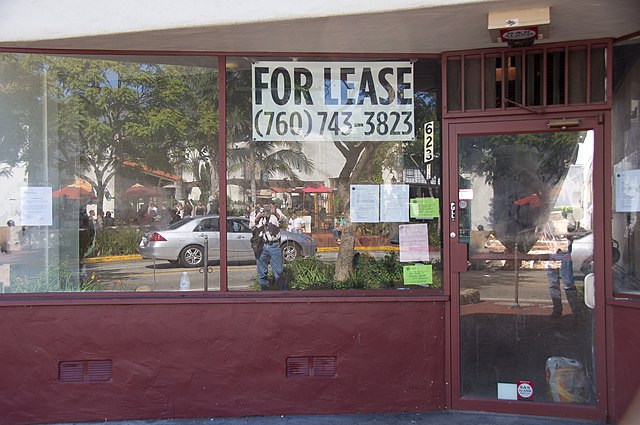Late rent fees can be a contentious issue between landlords and tenants. When a tenant fails to pay their rent on time, landlords often charge a late rent fee to compensate for the extra time and effort involved in collecting the payment. It’s important for both landlords and tenants to understand how late rent fees work and the policies surrounding them.
Late rent fees are fees charged by landlords to tenants who fail to pay their rent on time. These fees are typically a percentage of the monthly rent and are added to the total amount owed. For example, if a tenant has a monthly rent of $1,000 and their landlord charges a 5% late fee, the tenant would owe an additional $50 if they paid their rent late.
Late rent fees are important to landlords because they provide a financial incentive for tenants to pay their rent on time. Late fees also compensate landlords for the additional time and effort involved in chasing down late payments. For tenants, late rent fees can be a significant financial burden, especially if they are struggling to make ends meet.
It’s important for both landlords and tenants to understand the late rent fees policy. Landlords should have a written policy that outlines when late fees are charged, how they are calculated, and any grace periods that may apply. Tenants should review their lease agreement carefully to understand their rights and responsibilities when it comes to late rent fees.
Table of Contents
- Understanding Late Rent Fees
- Late Rent Fees Policies
- Late Rent Payment Strategies
- Legal Considerations
- Final Thoughts
Understanding Late Rent Fees
Late rent fees are an additional fee that tenants are charged when they fail to pay their rent on time. This fee is a way for landlords to compensate for the extra time and effort involved in collecting the rent payment. Let’s take a closer look at what late rent fees are and how they are calculated.
The definition of late rent fees is pretty straightforward: it’s an additional fee that landlords charge to tenants who fail to pay their rent on time. Late fees are typically a percentage of the monthly rent, with the exact percentage varying depending on the landlord’s policy. It’s important to note that late rent fees are legal and enforceable, as long as they are included in the lease agreement.
Calculating late rent fees is also relatively simple. Let’s say a tenant’s monthly rent is $1,000, and the landlord’s late fee policy is 5% of the monthly rent. If the tenant pays their rent four days late, the late fee would be $50 ($1,000 x 0.05 = $50).
Grace periods are a common feature of late rent fee policies. A grace period is a set amount of time after the rent due date during which the tenant can still pay their rent without incurring a late fee. The length of the grace period varies depending on the landlord’s policy, but it’s usually between 1-5 days.
It’s important to note that late fees begin accruing after the grace period expires. For example, if a tenant’s rent is due on the first of the month and the landlord’s policy has a three-day grace period, the late fee would begin on the fourth day of the month.
In summary, understanding late rent fees is crucial for both landlords and tenants. Late fees are an additional charge that tenants must pay if they fail to pay their rent on time. Landlords typically calculate late fees as a percentage of the monthly rent, and the fee begins accruing after the grace period expires. By understanding how late rent fees work, landlords and tenants can avoid misunderstandings and potential conflicts.
Late Rent Fees Policies
Having a written late rent fees policy is crucial for landlords to ensure that tenants understand the consequences of late rent payments. It also helps to ensure that all tenants are subject to the same rules and regulations. Let’s take a closer look at the importance of a written policy, some common policies, and how they can affect tenants.
A written late rent fees policy provides clarity and transparency for both landlords and tenants. This policy should outline when late fees are charged, how they are calculated, any grace periods that may apply, and any penalties for repeated late payments. By having a written policy, landlords can avoid misunderstandings and potential conflicts with tenants.
Common late rent fees policies include a percentage of the monthly rent or a flat fee, with the exact amount varying depending on the landlord’s policy. Some landlords also offer a grace period, during which tenants can pay their rent without incurring a late fee. The length of the grace period varies depending on the landlord’s policy, but it’s typically between 1-5 days.
The late rent fees policy can have a significant impact on tenants. For example, a high late fee percentage or flat fee can be a significant financial burden for tenants who are struggling to make ends meet. Conversely, a low late fee or no late fee policy can incentivize tenants to pay their rent late, which can create problems for landlords.
It’s important for landlords to strike a balance between reasonable late fees and providing flexibility for tenants who may be facing financial hardship. Some landlords may offer payment plans or work with tenants to create a plan to pay their rent in installments to avoid late fees.
In the end, having a written late rent fees policy is crucial for landlords to avoid misunderstandings and potential conflicts with tenants. Common policies include a percentage of the monthly rent or a flat fee, with a grace period to allow tenants to pay without incurring a late fee. Landlords should consider the impact of their policy on tenants and strive to strike a balance between reasonable late fees and providing flexibility for tenants who may be facing financial hardship.
Late Rent Payment Strategies
Late rent payments can be stressful for both landlords and tenants. Tenants who consistently pay late may face eviction or legal action, while landlords may face financial difficulties as a result of unpaid rent. However, there are strategies that both tenants and landlords can use to avoid late rent payments. Let’s take a closer look at some of these strategies.
Tips for avoiding late rent payments
- Set reminders: Tenants should set reminders for rent due dates to avoid missing payments.
- Create a budget: Creating a budget can help tenants to manage their finances more effectively and ensure that they have enough money to pay their rent on time.
- Prioritize rent payments: Tenants should prioritize their rent payments over other bills to ensure that they are paid on time.
- Automate rent payments: Setting up automatic rent payments can ensure that rent is paid on time each month.
Strategies for tenants to pay rent on time
- Ask for a payment plan: If tenants are facing financial difficulties, they can ask their landlord for a payment plan to pay their rent in installments.
- Consider asking for a rent reduction: If tenants are struggling to pay their rent, they can ask their landlord for a rent reduction or a temporary reduction in rent.
- Use community resources: Tenants can seek help from community resources such as non-profit organizations, religious institutions, or government agencies that provide rental assistance.
- Notify landlords in advance: If tenants know that they will not be able to pay their rent on time, they should notify their landlord in advance.
- Be honest: Tenants should be honest with their landlords about their financial situation and their ability to pay their rent on time.
- Work with landlords: Tenants and landlords can work together to find a solution to late rent payments, such as a payment plan or temporary rent reduction.
Avoiding late rent payments requires both tenants and landlords to take proactive steps to ensure that rent is paid on time. Tenants can use strategies such as setting reminders, creating a budget, and automating rent payments. If tenants are facing financial difficulties, they can ask for a payment plan, seek community resources, or ask for a rent reduction. Communication between tenants and landlords is also crucial to find a solution to late rent payments.
Legal Considerations
Late rent fees are subject to various legal rights and obligations for both landlords and tenants. It’s important to understand these legal considerations to avoid potential legal disputes. Let’s take a closer look at some of the legal considerations surrounding late rent fees.
Legal rights and obligations of landlords and tenants regarding late rent fees
- Late rent fees must be reasonable: Landlords cannot charge excessive late fees that are disproportionate to the amount of rent owed.
- Late rent fees must be specified in the lease agreement: Landlords must include their late rent fee policy in the lease agreement, and tenants must agree to the policy before signing the lease.
- Landlords must provide notice before charging late fees: Landlords must provide tenants with notice before charging late fees, typically in the form of a late rent notice.
- Tenants have the right to dispute late fees: If tenants believe that their landlord has charged an unreasonable late fee, they have the right to dispute the fee.
State-specific laws and regulations
State-specific laws and regulations can vary regarding late rent fees. For example, some states have specific laws regarding the maximum amount of late fees that landlords can charge, while others may require a grace period before late fees can be charged. It’s important for landlords and tenants to be aware of their state’s specific laws and regulations regarding late rent fees.
Consequences for not paying late rent fees
Failure to pay late rent fees can result in various consequences for tenants. These consequences can include eviction, legal action, and damage to credit scores. Landlords may also be able to withhold services or amenities such as parking or laundry facilities if late rent fees are not paid.
Landlords and tenants must be aware of their legal rights and obligations regarding late rent fees. Late rent fees must be reasonable and specified in the lease agreement, and tenants have the right to dispute fees they believe are unreasonable. State-specific laws and regulations can also vary regarding late rent fees, and failure to pay late fees can result in various consequences for tenants, including eviction and legal action.
Final Thoughts
Tenants should prioritize their rent payments, communicate with their landlords about their financial situation, and seek community resources if needed. Landlords should have a written late rent fees policy, provide notice before charging late fees, and comply with state-specific laws and regulations.
In summary, understanding late rent fees policies, legal considerations, and payment strategies is essential for both tenants and landlords. By working together, tenants and landlords can avoid late rent payments and the associated consequences, maintain good rental relationships, and ensure that properties are well-maintained.

Meds is an attorney currently residing on the East Coast, where he practices law. While his primary focus lies in criminal law, he also has experience in family and personal injury law. His legal background enables him to navigate a variety of legal challenges and provide comprehensive assistance to his clients.





